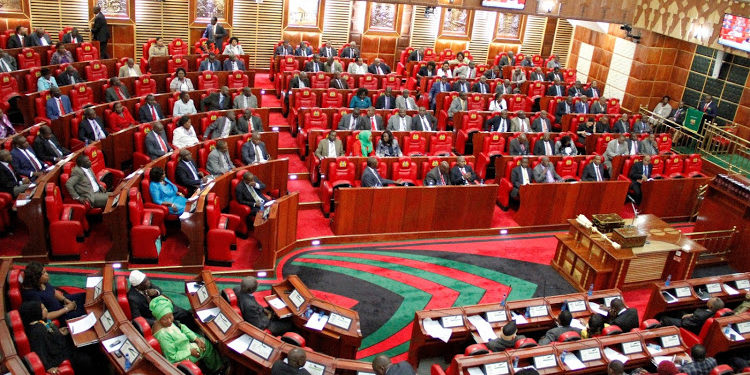On Thursday 14, Parliament approved the legislation that will establish the affordable housing program. This indicates that Kenyans should prepare as the government plans to commence deducting a 1.5 per cent tax from both employers and employees as early as March.
Despite the court’s recent decision to abolish the levy, Ruto’s administration has taken steps to reinstate it through legislation, awaiting the head of state’s signature on the bill.
On January 26, an appellate court dismissed the government’s attempt to sustain the levy collection as per tax regulations. Despite opposition from MPs, pro-government legislators pushed through the Bill. Lawmakers aligned with the Azimio coalition criticized the legislation as unlawful and unconstitutional.
The approved legislation now formalizes the 1.5 percent contribution for employees, with employers required to match the same percentage.
Additionally, both the National Assembly and the Senate agreed on amendments, including the creation of County Affordable Housing Committees.
The soon-to-be-established Committees will be responsible for overseeing the affordable housing project. Governors will nominate a non-executive chairperson for each County Committee, who will provide advice on affordable housing matters within the county.
According to Kimani Kuria, chairman of the Finance and Planning Committee, the introduction of these Committees signifies a move to engage counties in affordable housing initiatives.
This new introduction essentially places counties at the forefront of program implementation, considering that affordable housing falls under devolved functions.
Another amendment by the Senate and which National Assembly adopted is the reduction of the cost of collecting the levy by KRA which was initially at two percent.
In the approved Bill now waiting president assent, the collection cost has been reduced to 0.5 percent of the amount collected by KRA.
In the consolidated draft, the housing units will be aimed at individuals earning between KES 20,000 and KES 140,000 per month. This initiative represents a significant step towards enabling individuals in lower income brackets to become homeowners through the project.
As part of their enhancements to the Bill, senators mandated that only the National Housing Board will be authorized to facilitate any transfer of the housing units. This implies that individuals who benefit from the affordable housing and wish to sell their units will need to obtain approval from the Board beforehand.
Under the new law, Kenyans who make voluntary saving to the scheme will be able to redeem the same if the fail to get a house. They will only need to apply for withdrawal by issuing a 90 day written notice to the National Housing Board.
“A person who has made a voluntary saving and has not been allocated an affordable housing unit may withdraw their savings by issuing ninety days’ written notice to the agency for refund with any accrued interest,” the harmonized legislation reads.
“The person may apply to the Board for approval of issuance of an affordable mortgage to develop a rural affordable housing unit.”















